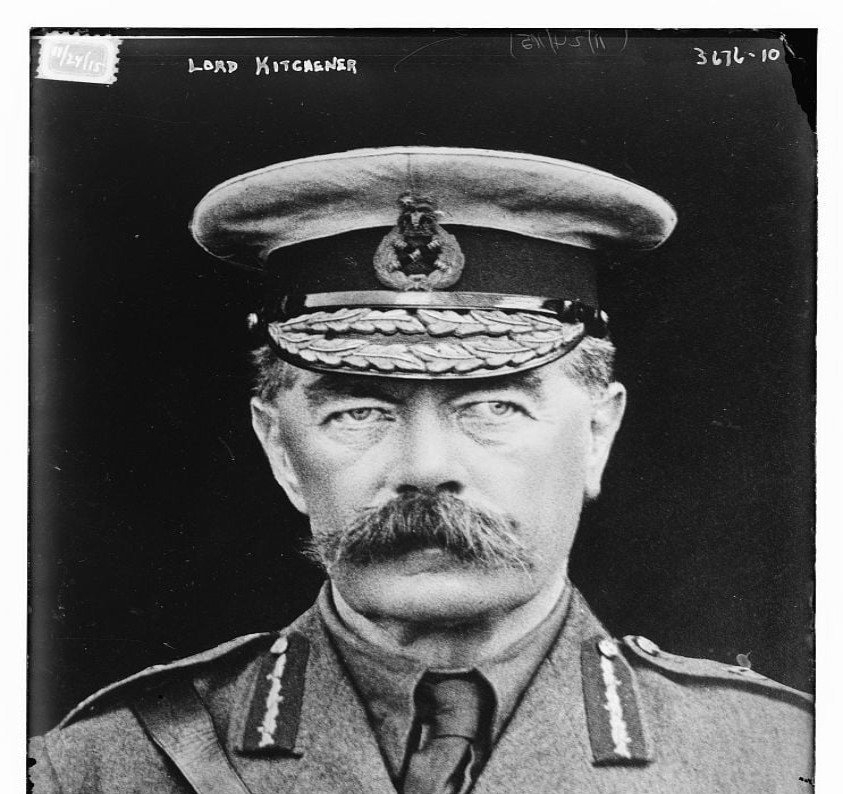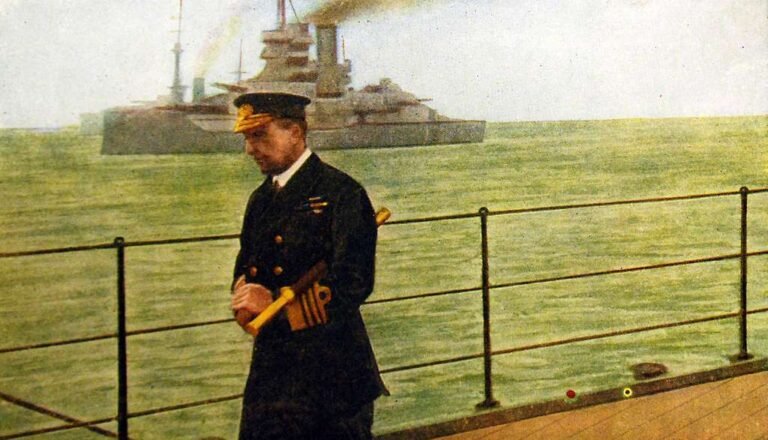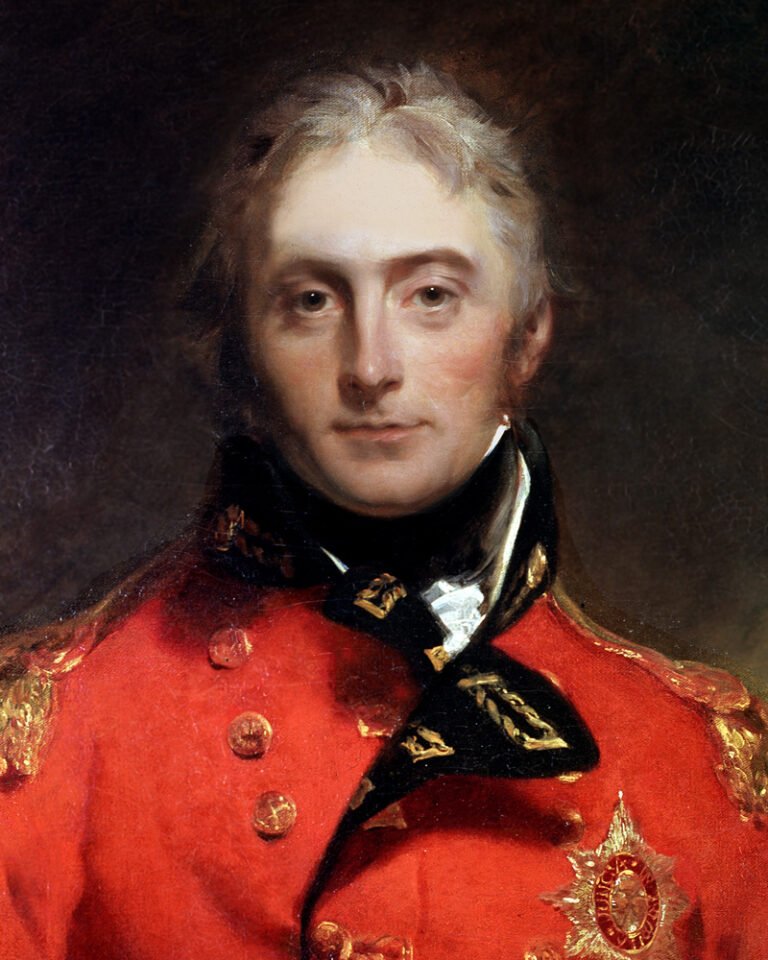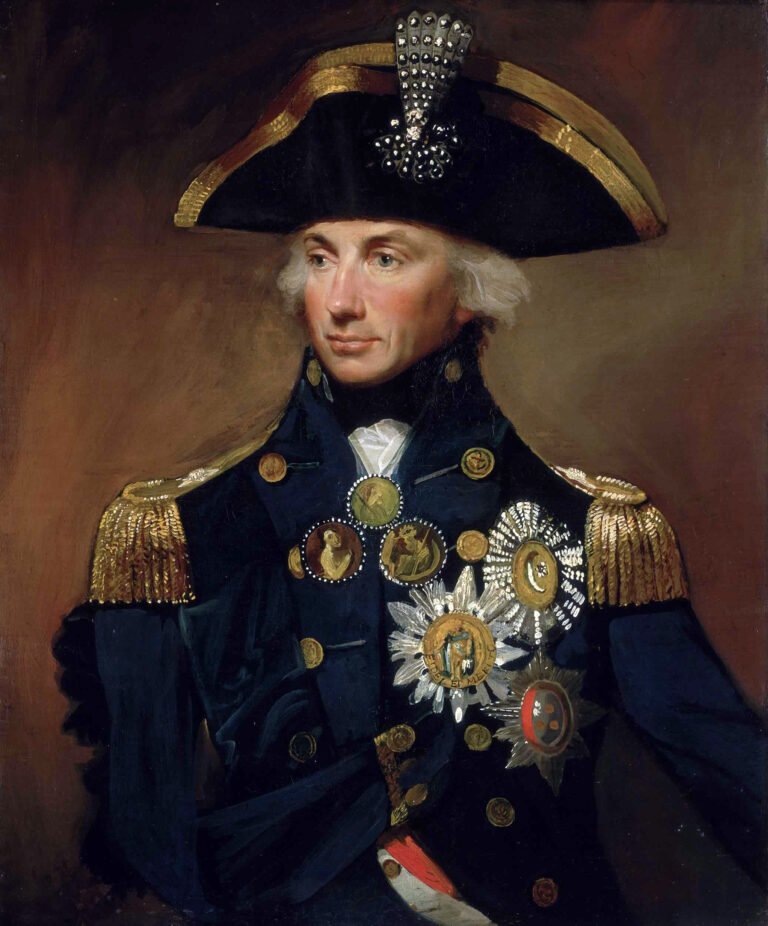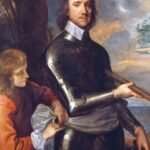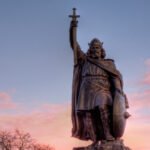General Lord Kitchener was a prominent British military leader. His name is linked with significant events in history.
General Lord Kitchener played a crucial role during the British Empire’s peak. Born in 1850, Kitchener’s military career spanned several continents. He became famous for his work in the Sudan and later in the Boer War. His image was immortalized during World War I with the famous recruiting poster.
His leadership and strategies were both admired and criticized. This blog post will explore his life, achievements, and the controversies surrounding him. Join us as we delve into the fascinating journey of General Lord Kitchener, a man whose impact on history is still discussed today.

Credit: www.britannica.com
Early Life
General Lord Kitchener was a prominent figure in British military history. His early years were filled with experiences that shaped his future. Let’s delve into his upbringing and the influences that molded him.
Birth And Family Background
Herbert Kitchener was born on June 24, 1850. He hailed from a military family, which greatly influenced his path. His father, Lieutenant Colonel Henry Kitchener, served in the British Army, setting a strong example for young Herbert.
Growing up in County Kerry, Ireland, Herbert experienced the disciplined lifestyle of a military household. His family’s background instilled in him a sense of duty and honor. These values would later define his career.
Education And Early Influences
Herbert’s education began at home, under the strict guidance of his parents. He later attended the Royal Military Academy, Woolwich. The academy was known for its rigorous training and discipline.
At Woolwich, Herbert excelled in his studies. He showed a keen interest in engineering and military tactics. These subjects were crucial in shaping his strategic mind.
One of his early mentors was his uncle, who was also a military officer. This relationship had a profound impact on Herbert’s aspirations. He looked up to his uncle and often sought his advice.
Can you imagine growing up with such strong influences around you? It’s no wonder Kitchener became the determined and strategic leader we remember today.
What early experiences have shaped your own path? Reflecting on these can offer valuable insights into your personal and professional journey.
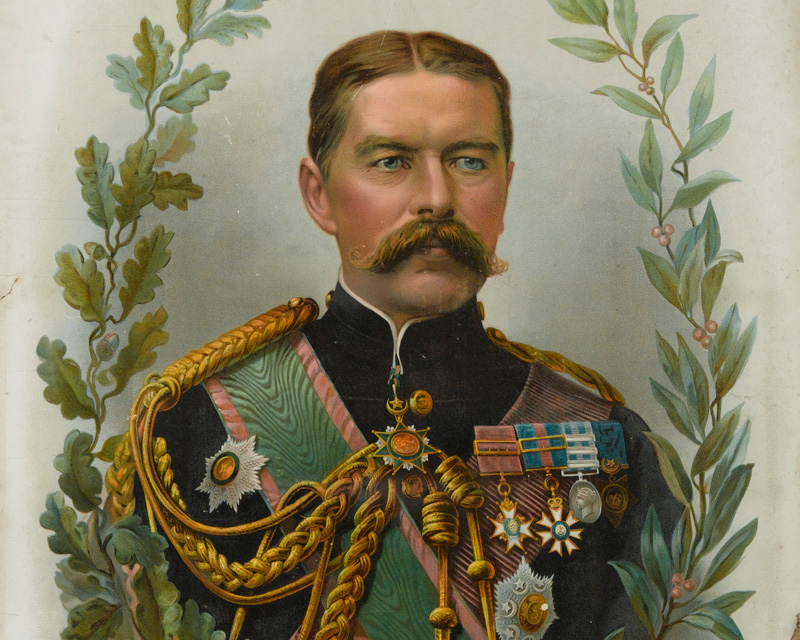
Credit: www.nam.ac.uk
Military Beginnings
General Lord Kitchener’s military journey is filled with significant events. His career started with dedication and bravery. Each step built his reputation as a formidable leader.
Initial Enlistment
Kitchener began his military service in 1871. He enlisted in the Royal Engineers. This branch of the army focused on military engineering tasks. His early days were filled with intense training. Kitchener quickly displayed a strong grasp of military tactics.
Early Campaigns And Battles
Kitchener’s first significant deployment was in the Middle East. He served in the Palestine Exploration Fund survey. Here, he showed his skill in mapping and reconnaissance. His efforts were crucial for future military operations. Kitchener’s early campaigns built his experience and confidence.
Later, Kitchener was involved in the Nile Expedition. This mission aimed to relieve General Gordon at Khartoum. Though the mission faced many challenges, Kitchener’s leadership shone through. These early experiences shaped his strategic thinking and command abilities.
Rise To Prominence
General Lord Kitchener rose to prominence during the late 19th and early 20th centuries. He played key roles in British military campaigns, especially in Sudan and the Boer War. His leadership and strategic skills made him a national hero.
### Rise to Prominence
General Lord Kitchener’s rise to prominence is a story of remarkable dedication, strategic brilliance, and unwavering commitment. His journey from a young officer to one of Britain’s most revered military leaders is filled with notable milestones and achievements. Let’s delve into the key promotions and significant accomplishments that marked his path to greatness.
Key Promotions
Kitchener’s career was marked by a series of critical promotions that showcased his tactical acumen and leadership qualities.
In 1882, he was promoted to captain after his exemplary service in the Anglo-Egyptian War. This early recognition set the stage for his future successes.
Another notable promotion came in 1898 when he was made a major general. His leadership during the Battle of Omdurman, where he led British forces to a decisive victory, was instrumental in this advancement.
Each promotion was a testament to his growing reputation as a capable and innovative leader. How do you think such steady recognition impacts a leader’s confidence and strategy?
Notable Achievements
Kitchener’s achievements were as significant as his promotions. They not only cemented his status but also had lasting impacts on military strategies.
In the late 1890s, his successful campaign in Sudan, which included the construction of a railway to transport troops and supplies, showcased his logistical ingenuity. This move was a game-changer in military tactics.
In the early 1900s, Kitchener’s role during the Second Boer War was pivotal. His implementation of concentration camps and scorched earth policies, though controversial, were strategic moves aimed at weakening the Boer resistance.
His appointment as Secretary of State for War in 1914 marked a peak in his career. Kitchener’s foresight in raising a massive volunteer army at the onset of World War I was crucial. His famous recruitment poster, “Your Country Needs You,” became an iconic symbol of wartime Britain.
Each achievement not only highlighted his strategic brilliance but also his ability to adapt and innovate. Reflecting on Kitchener’s journey, what lessons do you think modern leaders can draw from his ability to foresee and adapt to changing circumstances?
In examining Kitchener’s rise to prominence, it’s evident that his career was built on a foundation of consistent excellence, strategic foresight, and impactful decisions. His legacy continues to offer valuable insights into leadership and military strategy.
The Sudan Campaign
The Sudan Campaign stands out as a pivotal moment in British military history and in the life of General Lord Kitchener. This campaign not only marked the defeat of the Mahdist forces but also solidified Kitchener’s reputation as a brilliant military strategist. Let’s delve into the key events that shaped the campaign, focusing on the strategic planning and the Battle of Omdurman.
Strategic Planning
Strategic planning was at the heart of Kitchener’s success in the Sudan Campaign. Kitchener meticulously prepared for the campaign by leveraging modern technology and logistics. He prioritized the construction of the Sudan Military Railway, ensuring a steady supply line.
Imagine the challenge of transporting thousands of troops and tons of supplies across vast deserts. The railway solved this problem efficiently. It allowed Kitchener to move his forces quickly and maintain their strength.
One interesting detail is how he used the latest communication technologies of the time. The deployment of telegraph lines enabled rapid communication across great distances. This allowed Kitchener to coordinate his forces effectively and respond to enemy movements swiftly.
Have you ever thought about how vital supply lines are in a military campaign? Kitchener’s focus on logistics ensured his troops were well-fed, well-armed, and always ready for battle. This meticulous planning laid the groundwork for the decisive victory at Omdurman.
The Battle Of Omdurman
The Battle of Omdurman, fought on September 2, 1898, was the climax of the Sudan Campaign. It showcased Kitchener’s strategic brilliance and the effectiveness of his preparations. The battle saw British and Egyptian forces clash with the Mahdist army near the city of Omdurman.
Kitchener’s forces were outnumbered but far better equipped. His troops used Maxim guns, an early form of a machine gun, to devastating effect. The Mahdist forces, although brave and determined, stood little chance against the superior firepower.
During the battle, Kitchener’s tactical acumen was evident. He positioned his forces strategically to maximize their firepower and minimize their exposure to enemy attacks. The result was a decisive victory with minimal casualties on the British side.
Have you ever considered how modern technology impacts warfare? The use of Maxim guns and other advanced weapons turned the tide in favor of Kitchener’s forces. This battle highlighted the importance of technological superiority in military conflicts.
The Battle of Omdurman not only crushed the Mahdist forces but also marked the end of the Mahdist state. It paved the way for British control over Sudan. This victory cemented Kitchener’s legacy and exemplified the impact of strategic planning and technological innovation in warfare.
The Sudan Campaign serves as a powerful reminder of the importance of preparation, technology, and strategic thinking in achieving military success. What can you learn from Kitchener’s approach that you can apply to your own challenges?
The Boer War
General Lord Kitchener played a key role in the Boer War. He introduced concentration camps and guerrilla warfare tactics. His strategies were controversial but effective.
The Boer War was a significant conflict in which General Lord Kitchener played a crucial role. This war, fought between the British Empire and the two Boer Republics, was marked by intense guerrilla warfare and challenging terrain. Kitchener’s strategies and decisions during this period had a lasting impact on military tactics and operations.
Challenges Faced
During the Boer War, General Lord Kitchener encountered numerous challenges. The Boers employed guerrilla tactics, making it difficult for the British forces to engage them in traditional battles. The vast and rugged terrain of South Africa further complicated military operations.
Kitchener had to adapt quickly to these conditions. He implemented a scorched earth policy, destroying Boer farms and resources to cut off their supplies. This approach was controversial but aimed to weaken the enemy’s ability to sustain prolonged resistance.
Maintaining morale among British troops was another significant challenge. The harsh conditions and prolonged nature of the war took a toll on soldiers. Kitchener’s leadership was crucial in keeping the troops focused and motivated despite these adversities.
Impact On Military Tactics
Kitchener’s strategies during the Boer War had a profound impact on military tactics. One of his notable contributions was the use of blockhouses and barbed wire to create defensive networks. This restricted Boer movements and protected key areas.
He also pioneered the establishment of concentration camps for Boer civilians. While intended to prevent support for guerrilla fighters, these camps faced severe criticism due to the harsh living conditions and high mortality rates.
Kitchener’s approach to counter-insurgency operations influenced future military tactics. His focus on disrupting enemy supply lines and using fortified positions became standard practices in later conflicts.
Have you ever considered how these historical tactics might apply to modern military strategies? Understanding Kitchener’s methods offers valuable insights into the evolution of warfare and the complexities of leadership in challenging environments.
World War I Contributions
General Lord Kitchener played a key role during World War I. His leadership in organizing armies was crucial for the Allies’ efforts.
In the annals of history, General Lord Kitchener stands out as a prominent figure, particularly for his contributions during World War I. His leadership and strategies had a significant impact on the war’s progression and on the soldiers who fought. Let’s delve into some of his key contributions during this critical period.
Role As Secretary Of State For War
When World War I erupted, General Lord Kitchener was appointed as the Secretary of State for War. This was a pivotal role. He was responsible for the overall strategy and management of the British Army.
Kitchener predicted a long and grueling conflict, contrary to the prevailing belief that the war would be short. This insight led him to make critical decisions early on. He focused on expanding the army and ensuring that it was well-prepared for the prolonged struggle ahead.
His stern visage became a symbol of resilience and determination. Many recall the iconic poster of Kitchener pointing directly at the viewer, with the words “Your country needs YOU”. It was a call to arms that resonated deeply with the British public.
Recruitment Strategies
Kitchener’s recruitment strategies were innovative and highly effective. He understood the need for a massive increase in troop numbers. His recruitment campaign, dubbed “Kitchener’s Army,” aimed to enlist volunteers rather than relying solely on conscription.
He launched a series of compelling posters and advertisements, appealing directly to the sense of duty and patriotism among British men. The imagery and messaging were powerful and personal, urging individuals to come forward and join the fight.
One of the most innovative strategies was the creation of “Pals Battalions.” These units allowed men from the same communities, workplaces, and social groups to enlist and serve together. This approach not only boosted recruitment numbers but also fostered a strong sense of camaraderie among the troops.
Kitchener’s strategies had a lasting impact. By the end of 1914, over a million men had volunteered to join the British Army. His ability to inspire and mobilize such a large number of volunteers was crucial in sustaining the British war effort.
Have you ever wondered what might have happened if Kitchener’s insights and strategies had not been implemented? The face of World War I could have been drastically different. His foresight and determination were instrumental in shaping the course of the conflict.
General Lord Kitchener’s contributions during World War I are a testament to the power of visionary leadership and innovative thinking. His legacy continues to be remembered and honored for the profound impact it had during one of the most challenging times in history.
Legacy And Impact
General Lord Kitchener is a name that echoes through military history. His legacy and impact are profound. They extend beyond his lifetime and continue to influence modern military strategies.
Influence On Modern Military Strategies
General Kitchener introduced new tactics and strategies. His approaches are still studied today. His emphasis on organization and efficiency set standards. Many modern military leaders adopt his methods. His focus on detailed planning has become essential. He believed in thorough preparation before any operation. This practice is common in today’s military operations.
General Kitchener’s impact on logistics is notable. He stressed the importance of supply lines. Modern armies follow this principle closely. His strategies during the Boer War and World War I were groundbreaking. They shaped how wars are fought even now.
Commemoration And Memorials
General Kitchener’s legacy is honored worldwide. Many memorials and statues celebrate his contributions. The most famous is the Kitchener Memorial in Orkney, Scotland. This structure stands tall as a reminder of his service. Streets and buildings are named after him. His face is well-known from the “Your Country Needs You” poster.
Schools and institutions also bear his name. These serve to educate future generations about his impact. Annual events and ceremonies commemorate his achievements. His legacy continues to inspire many.
Controversies And Criticisms
General Lord Kitchener remains a figure of debate. His military career is marked by several controversies and criticisms. These have sparked discussions among historians and the public.
Debates On Tactics
Many argue about Kitchener’s strategies during the Boer War. His use of scorched earth policies raised ethical questions. Critics say these tactics caused unnecessary suffering. The concentration camps he established drew significant condemnation. Thousands of civilians were detained under harsh conditions. This led to high mortality rates among the detainees.
Public Perception
Kitchener’s image varied greatly among different groups. Some saw him as a hero who served his country. Others viewed him as a symbol of British imperialism. His stern and unyielding demeanor influenced public opinions. Propaganda often portrayed him as a strong leader. Yet, many questioned his methods and decisions. These mixed perceptions continue to shape his legacy.
FAQs
What Was Lord Kitchener Famous For?
Lord Kitchener was famous for his role as a British military leader. He is best known for his service during the Boer War and World War I. His iconic recruitment poster, “Your Country Needs You,” remains widely recognized.
Why Was Lord Kitchener Controversial?
Lord Kitchener was controversial due to his harsh military tactics in the Boer War, including concentration camps. His leadership style often faced criticism.
Who Was The Highest Ranking Officer Killed In WWI?
Lieutenant General Sir Frederick Stanley Maude was the highest ranking officer killed in World War I. He died in 1917.
Who Is The Current Lord Kitchener?
The current Lord Kitchener title is vacant. The last person to hold the title was Henry Herbert Kitchener.
Conclusion
General Lord Kitchener’s legacy remains influential in military history. His strategic skills and leadership shaped many outcomes. His role in World War I marked significant moments. His approach to recruitment left lasting impacts. Kitchener’s name is synonymous with dedication and service.
His contributions continue to inspire future leaders. Understanding his impact helps appreciate historical military strategies. His life exemplifies commitment to national duty. Remembering Kitchener honors those who serve with courage. His story is a testament to perseverance and resilience.

